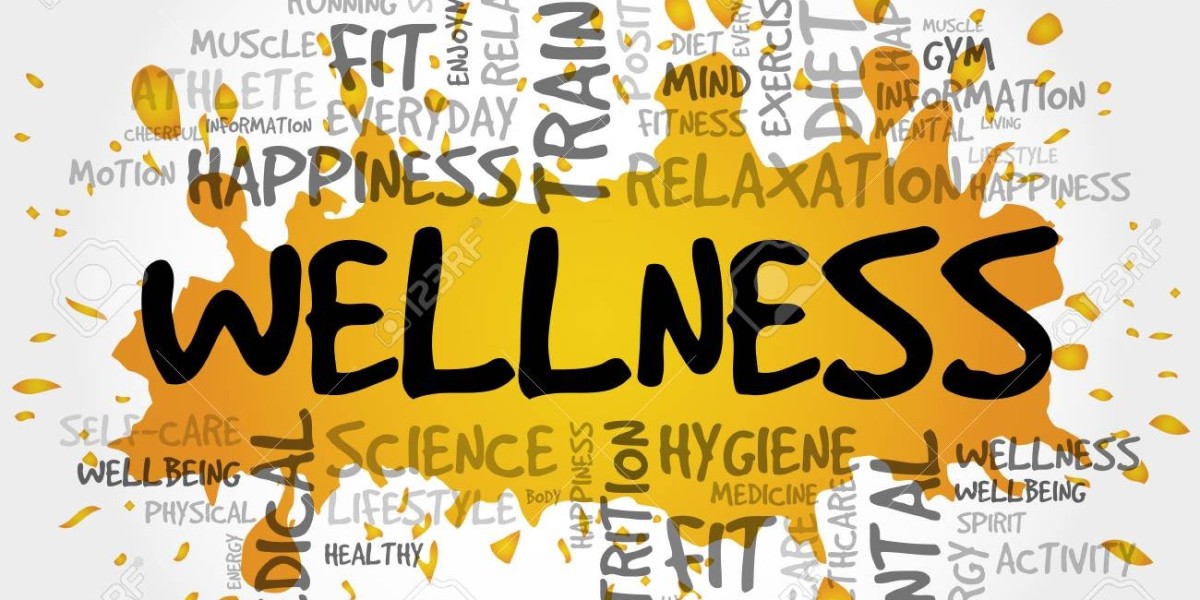In a fast-paced world, maintaining good health and wellness has become more crucial than ever. With increasing stress levels, unhealthy lifestyles, and environmental challenges, taking care of both our physical and mental well-being is essential. A holistic approach to health and wellness not only improves longevity but also enhances overall quality of life. This blog explores the key aspects of health and wellness, offering insights on how to achieve a balanced and fulfilling life.
Understanding Health and Wellness
Health and wellness are often used interchangeably, but they have distinct meanings. Health refers to the physical, mental, and social well-being of an individual, while wellness encompasses a proactive approach to living a healthy lifestyle. Wellness is an ongoing journey that requires conscious efforts to maintain balance in all aspects of life.
The Dimensions of Wellness
Physical Wellness
Maintaining a healthy diet and staying hydrated
Engaging in regular physical activity
Getting adequate sleep and rest
Avoiding harmful habits such as smoking and excessive alcohol consumption
Mental and Emotional Wellness
Managing stress through mindfulness and relaxation techniques
Seeking therapy or counseling when needed
Cultivating a positive mindset and resilience
Engaging in activities that bring joy and fulfillment
Social Wellness
Building strong relationships with family and friends
Participating in community activities and social groups
Practicing effective communication and conflict resolution
Offering and receiving emotional support
Spiritual Wellness
Finding purpose and meaning in life
Practicing gratitude and mindfulness
Engaging in meditation, prayer, or personal reflection
Aligning actions with personal values and beliefs
Environmental Wellness
Living in a clean and safe environment
Reducing waste and practicing sustainability
Connecting with nature through outdoor activities
Being mindful of the impact of one’s actions on the planet
The Importance of a Balanced Diet
Eating a well-balanced diet is fundamental to maintaining overall health. Incorporating a variety of nutrient-dense foods, such as fruits, vegetables, whole grains, and lean proteins, ensures that the body receives essential vitamins and minerals. Reducing processed foods, refined sugars, and unhealthy fats can help prevent chronic diseases such as obesity, diabetes, and heart disease.
Tips for Healthy Eating
Eat more whole, unprocessed foods
Stay hydrated by drinking plenty of water
Control portion sizes to maintain a healthy weight
Include a variety of foods to get a broad spectrum of nutrients
Plan meals ahead to avoid unhealthy food choices
Exercise and Its Role in Wellness
Regular physical activity is vital for maintaining a healthy body and mind. Exercise not only helps control weight but also improves mood, boosts energy levels, and reduces the risk of chronic diseases.
Types of Physical Activities
Aerobic Exercises: Running, swimming, cycling
Strength Training: Weight lifting, resistance exercises
Flexibility and Balance Training: Yoga, stretching, tai chi
Recreational Activities: Hiking, dancing, team sports
Incorporating at least 150 minutes of moderate-intensity exercise per week can have significant health benefits. Finding an activity that is enjoyable makes it easier to stick to a consistent exercise routine.
Mental Health and Stress Management
Mental well-being is just as important as physical health. High stress levels can lead to anxiety, depression, and other health problems. Practicing mindfulness, deep breathing, meditation, and engaging in hobbies can help reduce stress and promote emotional balance.
Simple Ways to Reduce Stress
Practice deep breathing exercises
Engage in regular physical activity
Get adequate sleep and rest
Connect with loved ones and seek social support
Set realistic goals and priorities to avoid overwhelming situations
The Role of Sleep in Overall Health
Adequate sleep is essential for the body to function properly. Poor sleep can affect mood, cognitive function, and immune system strength. Adults should aim for 7-9 hours of quality sleep per night.
Tips for Better Sleep
Maintain a consistent sleep schedule
Create a relaxing bedtime routine
Limit screen time before bed
Keep the sleeping environment cool, dark, and quiet
Building Healthy Relationships
Strong social connections contribute significantly to overall well-being. Supportive relationships help reduce stress, enhance happiness, and provide a sense of belonging.
Ways to Improve Social Wellness
Spend quality time with family and friends
Join clubs or groups that align with interests
Practice active listening and open communication
Express gratitude and appreciation to loved ones
Conclusion
Health and wellness are lifelong pursuits that require conscious effort and commitment. By maintaining a balanced diet, engaging in regular exercise, managing stress, and fostering strong relationships, individuals can achieve a healthier and more fulfilling life. Taking small, consistent steps towards holistic well-being can lead to lasting improvements in overall health. Start your wellness journey today and make choices that support a vibrant and thriving life!



